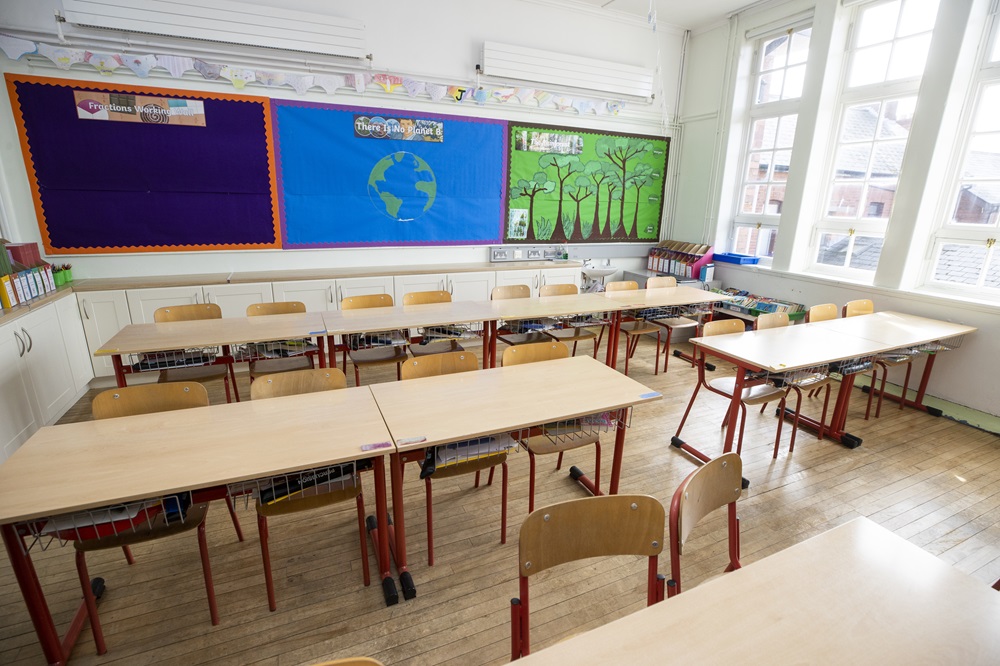Schools risk financial collapse without cash injection

Elgan Hearn Local Democracy Reporter
Senior councillors will be told that schools need a £7.4 million cash injection in next year’s budget to stave off the worst case scenario of the financial collapse of education.
At a meeting of Powys County Council’s Liberal Democrat/Labour cabinet on Tuesday, December 17, councillors will receive a report that recommends the cash injection in a bid to bring down predicted deficits in schools by over £10 million by the end of March 2027.
The total funding will be made up of £5.277 million to deal with immediate financial pressures on schools budgets which include: more children attending special schools, pay award inflation and addressing this year’s funding gap of £1.838 million.
A further £2.1 million will also need to be put into next year’s council budget to deal with increases to teacher pensions, although there is an “expectation” that the Welsh Government will provide extra funding for this.
Prediction
If the financial injection is agreed in the new year, it is predicted that cumulative deficits for the end of March 2026 of £7.588 million will come down to £3.790 million.
It also means that by March 2027, the predicted cumulative deficit of £15.784 million would also fall to £5.297million.
The eye watering figures of school funding gaps was first revealed by the council in July.
Report
The report said: “The current financial pressures place schools and settings at significant risk of being unable to fully meet the wellbeing and learning needs of learners and therefore the inherent risk of being placed in a statutory Estyn improvement category.
“If the number of schools in a formal Estyn category increase, this in turn will risk the local authority also being placed in a statutory follow-up category.”
Both of these will result in even further demands for financial resources to deliver the required improvements.”
“Estyn continue to monitor the levels of deficits held by schools within Powys and many of these remain a significant risk to the authority’s own financial position, particularly if they escalate as currently projected.”
The report explains that schools prepared their budgets earlier this year based on the extra £4.2million that was added to this year’s schools delegated budget which was £87.4 million out of a total council budget of £340.7.
The calculations are then based on assumptions that future budgets would be “cash flat” which means that all extra funding for increased demands and inflation would need to be met “within” existing budgets.
Reserves
The report said: “The schools’ delegated budget was not fully funded for pay and price pressures in 2023/2024 and in 2024/2025 and had to bear the significant in-year inflation on utility costs during 2022/2023 without any additional funding.”
“Where possible, the expectation was that schools used their reserves to cover these additional costs.
This has seen the cumulative school reserves drained, with only £900,000 left in this pot on March 31.
On April 1, 2022 this reserve had £9 million in it.
Head of finance, Ann Phillips said: “The council is finalising its budget modelling and has included the resource required to fully fund the school funding formula.
“Allocating £7.4 million to schools is a significant investment, in a year when balancing the overall budget will be challenging.
The report adds: “The education service, working with finance and human resources partners will continue to fully support and challenge schools in delivering an in-year balanced budget position as a minimum.”
Wales education watchdog Estyn are due to inspect the council again in February – with a report expected to be published before Easter.
Support our Nation today
For the price of a cup of coffee a month you can help us create an independent, not-for-profit, national news service for the people of Wales, by the people of Wales.





